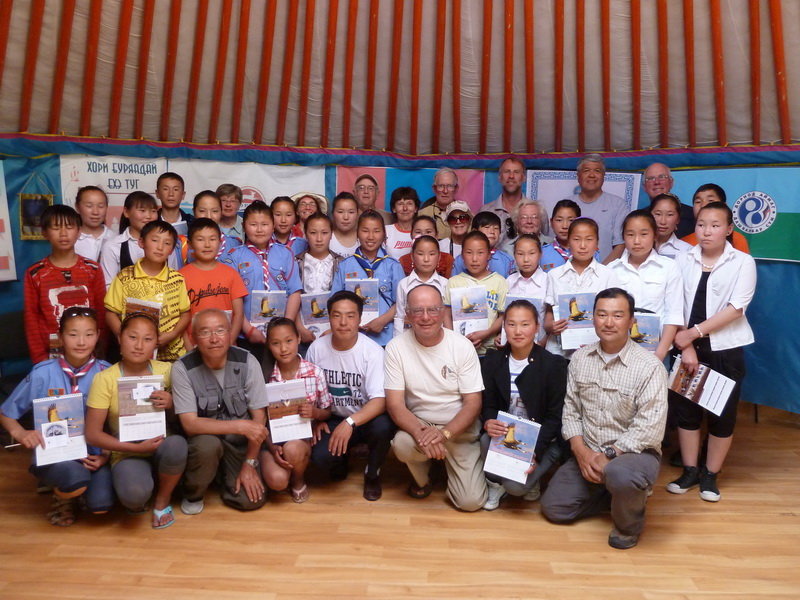Crane experts visit northeast Mongolia
In summer of 2012, a group of crane experts and conservationists from North America and Europe visited Mongolian northeast to help us to carry out field surveys and public awareness activities on white-naped cranes. The visit was organized with the support from the International Crane Foundation led by the co-founder Dr. George Archibald.
There are six species of cranes native to Mongolia. Especially, Mongolia is an important country for the white-naped cranes and more than half of the global population breeds in northeastern Mongolia. Therefore, it is important to monitor crane populations in this country and engage public in conservation. Although cranes are protected by tradition in Mongolia, there are many challenges for the survival of cranes, in particular the wetland-dependent, White-naped Crane.

The field survey covered most breeding locations of white-naped cranes in the region and assessed present situation of this species. Such survey works are very important because survey data will help us to better understand cranes and their habitat requirments, conflicts with free grazing livestock, impacts from drought, and highlight the loss of wetlands in this region. Therefore, the expedition was very critical for Mongolian conservationists and ornithologists.
Project produced a nice calendar and stickers with white-naped crane theme and distributed it to local people and organzied talks and discussions with local kids and protected area people.
